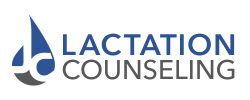Unveiling the Truths: What You Need to Know About Infant Formula and Baby Health
Bringing a new life into the world is an incredible journey, filled with joy and a fair share of challenges, especially when it comes to making decisions about infant feeding. Many parents, particularly those with preterm babies, are considering infant formula as a breast milk alternative, but it’s crucial to uncover the truths that formula companies might not tell you. For instance, the risk of Necrotizing Enterocolitis (NEC) in preterm babies is a serious concern that underscores the importance of breastfeeding whenever possible. However, every family’s situation is unique, and finding safe feeding options is all about accessing the right information and support. By connecting with lactation professionals and exploring community resources, you can empower yourself with the knowledge needed to make informed parenting choices that prioritize your baby’s health.
Understanding Infant Formula
As we dive into the world of infant nutrition, it’s crucial to understand the complexities surrounding infant formula and its role in baby health. Let’s explore the hidden truths behind formula marketing and compare breast milk with available alternatives.
Hidden Truths of Formula
When it comes to infant formula, not all information is created equal. Formula companies often present a rosy picture, but it’s essential to look beyond the marketing.
Formula marketing often emphasizes convenience and nutritional equivalence to breast milk. However, studies have shown that breast milk contains unique antibodies and living cells that formula cannot replicate.
Many parents are unaware that the FDA doesn’t require formula companies to disclose all ingredients. This lack of transparency can lead to unexpected reactions in some infants.
While formula can be a necessary option for some families, it’s important to recognize that it doesn’t provide the same immunological benefits as breast milk. Making an informed decision requires understanding these hidden truths.
Breast Milk vs. Alternatives
When comparing breast milk to formula alternatives, it’s crucial to understand the unique benefits each option offers. Let’s break down the key differences:
|
Aspect |
Breast Milk |
Formula |
|---|---|---|
|
Nutrition |
Tailored to baby’s needs |
Standardized |
|
Immunity |
Contains antibodies |
No living components |
|
Digestibility |
Easily digested |
May cause constipation |
|
Cost |
Free |
Can be expensive |
Breast milk is often referred to as “liquid gold” due to its perfect composition for infant nutrition. It changes over time to meet the baby’s evolving needs.
Formula, while a valid alternative, cannot replicate all the benefits of breast milk. However, it can be a lifesaver for mothers who cannot breastfeed or choose not to.
Research shows that breastfed babies have lower risks of certain health issues, including ear infections and sudden infant death syndrome (SIDS).
Health Risks and Considerations
When it comes to infant feeding, understanding potential health risks is paramount. This section explores specific concerns, particularly for preterm babies, and outlines safe feeding options for all infants.
Necrotizing Enterocolitis in Preterm Babies
Necrotizing Enterocolitis (NEC) is a serious intestinal disease that primarily affects premature infants. It’s crucial for parents of preterm babies to be aware of this condition and its potential link to formula feeding.
NEC can cause inflammation and damage to the intestinal tissue, potentially leading to life-threatening complications. Studies have shown that preterm infants fed formula are at a significantly higher risk of developing NEC compared to those fed breast milk.
The exact cause of NEC isn’t fully understood, but researchers believe that the immaturity of the intestinal lining in preterm babies plays a role. Breast milk contains protective factors that may help prevent this condition.
For parents of preterm infants, discussing feeding options with healthcare providers is crucial. Many hospitals now prioritize providing donor breast milk when mother’s own milk is not available, recognizing its protective benefits against NEC.
Safe Feeding Options for Infants
Ensuring safe feeding for your infant is a top priority. Whether you choose to breastfeed, formula feed, or use a combination, understanding safe practices is essential.
For breastfeeding mothers:
-
Maintain good hygiene, washing hands before feeding
-
Ensure proper latch to prevent nipple damage and ensure adequate milk transfer
-
Feed on demand to maintain milk supply
For formula feeding:
-
Always use sterilized bottles and equipment
-
Follow the manufacturer’s instructions for preparation exactly
-
Never reuse leftover formula
It’s important to note that the World Health Organization recommends exclusive breastfeeding for the first six months of life when possible. However, fed is best, and a well-fed baby is the ultimate goal.
Remember, every baby is unique. What works for one may not work for another. Always consult with your pediatrician to determine the best feeding plan for your infant.
Support and Resources for Parents
Navigating the world of infant feeding can be overwhelming, but you’re not alone. There are numerous resources and support systems available to help you make informed decisions and feel confident in your choices.
Connecting with Lactation Professionals
Lactation professionals play a crucial role in supporting breastfeeding mothers and helping families navigate feeding challenges. These experts can provide invaluable guidance and support.
Lactation consultants are specially trained to help with breastfeeding issues. They can assist with latch problems, milk supply concerns, and provide general breastfeeding education.
Many hospitals have lactation consultants on staff to help new mothers in the early days postpartum. Don’t hesitate to ask for this support if you’re struggling.
Outside the hospital, you can find lactation professionals through:
-
Local La Leche League groups
-
Community health centers
-
Online telehealth services
Remember, seeking help early can make a significant difference in your breastfeeding journey. Don’t wait until small issues become big problems before reaching out.
Community Support and Informed Parenting
Building a support network and accessing reliable information are key components of informed parenting. Community resources can provide both emotional support and practical advice.
Local parenting groups, both in-person and online, can be excellent sources of peer support. Sharing experiences with other parents can help normalize the challenges of infant feeding and parenting.
“It takes a village to raise a child.” – African Proverb
This age-old wisdom still holds true. Don’t hesitate to lean on your community for support.
For evidence-based information, look to reputable sources such as:
-
The American Academy of Pediatrics
-
The World Health Organization
-
Certified lactation consultants
-
Qualified healthcare professionals
Remember, informed parenting doesn’t mean knowing everything. It means knowing where to find reliable information and support when you need it.


